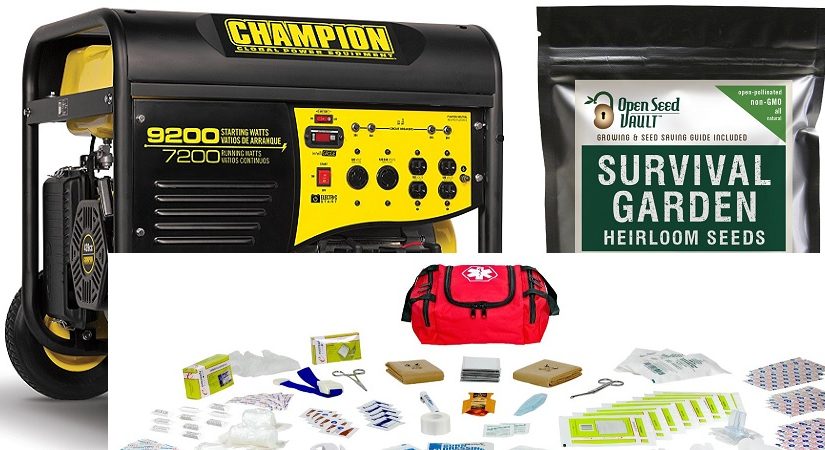We just had Christmas about a month ago, and if you’re like many preppers, you likely received some preparedness related gear as a gift. It’s tempting to think “ok, I can cross that off my list now”, keep it boxed up, and squirrel it away into your garage, shed, barn, or wherever you stash your gear. It is then very likely to either never get tried out, or sit idle for a long period of time before being rediscovered. This is a bad idea for several reasons.
Something Ain’t Right
The gear may be defective or not function how you expect. Most things have a limited time return policy, so if something is defective, you risk in the best case scenario not being able to return it to the store for a credit. In the worst case, if it’s something you’re depending on for survival such as a generator, piece of medical equipment, or solar panel kit, you don’t want to find out it doesn’t work on the day the power goes out for an extended period of time and you absolutely were counting on it. That new pre-built bug out bag looks very stylish and holds a ton of stuff, but unless you go out for a hike carrying it, you won’t know if it will be too heavy, be durable enough to last, suitably protect your gear from rain/snow, or rub a raw spot on your shoulder because it just doesn’t fit quite right.
Climate Sensitivity
The item may perform differently at different times of the year. Consider a Sun Oven, which is an extremely useful appliance to have for cooking and baking should traditional power not be available or in remote locations. It is going to perform quite differently in winter, when the sun stays low in the sky and ambient temperatures are much cooler, than in the summer. Items that use batteries such as cell phones, handheld GPS units, or voltmeters will likewise typically drain battery charge much faster in the cold of winter. You’ll want to practice with these items in a variety of elemental conditions so you can gauge their performance and have proper expectations for their use.
Know How to Use It
Using our gear also builds up our personal familiarity and skills. This applies pretty much across the board to all kinds of gear, as everything has a learning curve. Don’t wait until you’re out camping til you try to setup that new fancy tent. Don’t wait until there is no other means to cook food before gaining familiarity with how to use your rocket stove. A tricked out first aid kit is of very limited use unless you know what’s in it and how to use those items. And the all time example of needing to build up skills and experience with gear before relying on it: gardening. You absolutely do not want to be in a position where you’re relying on growing your own food to survive, yet you’ve never had experience building up the soil quality, putting a seed in the ground, and harvesting a successful crop. The prepper who buys a “survival seed bank“, tucks it away, and never tries to grow anything is in for quite a disappointment should its use ever become critical.
Get on a Schedule
It’s important to use your gear not just once or twice, but with regularity. Some skills are not like riding a bike, and you will forget them over time. A classic example of this is proficiency with firearms. If you don’t go to the range at least somewhat regularly, your marksmanship will deteriorate over time.
During 2017, we will be releasing software that will help you not only in knowing what gear you have and where it is, but also in keeping this resolution to regularly use your gear. In the meantime, try hard to remember to use the gear you have, because ultimately the best tool for ensuring your survival is not just the equipment, but the equipment in the hands of a proficient operator.


